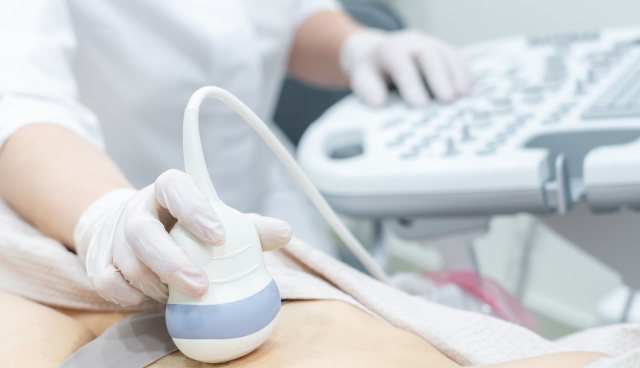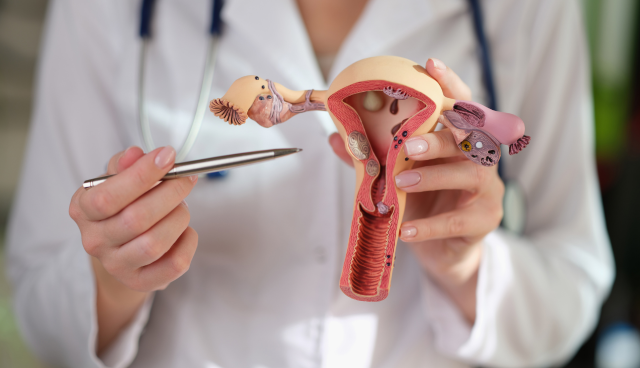
Gynecologist's Insights: The Truth About Sexually Transmitted Diseases
Sexually transmitted diseases (STDs) have been a topic of concern and curiosity for generations. As a gynecologist, I’ve encountered many myths, misconceptions, and worries about these infections. It’s essential to debunk myths, educate, and promote awareness to ensure everyone makes informed decisions regarding their sexual health. In this blog, we’ll delve into the world of sexually transmitted diseases, with a specific focus on syphilis, gonorrhea, and various types of STDs. We’ll explore the truth about STDs, their consequences, prevention, and the available treatment options.
Understanding Sexually Transmitted Diseases
Sexually transmitted diseases (STDs), also known as sexually transmitted infections (STIs), are a group of infections passed from one person to another through sexual contact. They can be caused by bacteria, viruses, or parasites and often manifest with a range of symptoms, while some may remain asymptomatic. It’s important to understand that anyone who is sexually active is at risk of contracting an STD, irrespective of age, gender, or sexual orientation.
Types of STDs
There are countless varieties of STDs, and they are all brought on by various microorganisms. Here’s a closer look at a few common ones:
- Treponema pallidum is the bacterial infection that causes syphilis. It progresses in stages, with each stage having distinct symptoms. Primary syphilis typically begins with a painless sore or ulcer at the site of infection. Without treatment, it can progress to secondary syphilis, marked by skin rashes, fever, and mucous membrane lesions. If left untreated, tertiary syphilis can develop, affecting the heart, brain, and other organs.
- Gonorrhea: Gonorrhea is another bacterial infection caused by Neisseria gonorrhoeae. It often presents with symptoms such as painful urination and abnormal discharge, but it can also be asymptomatic. If left untreated, gonorrhea can lead to severe complications, including infertility and an increased risk of contracting HIV.
- Chlamydia: Chlamydia is a common bacterial STD caused by Chlamydia trachomatis. Like gonorrhea, it can be asymptomatic. If symptoms do occur, they may include genital pain, discharge, and discomfort. Chlamydia left untreated can result in infertility and pelvic inflammatory disease.
- HIV/AIDS: Human Immunodeficiency Virus (HIV) can lead to Acquired Immunodeficiency Syndrome (AIDS). It weakens the immune system, making the body susceptible to various infections and cancers. HIV is transmitted through sexual contact, blood, and from mother to child during childbirth or breastfeeding.
- Herpes: Herpes simplex virus (HSV) causes genital herpes. Symptoms include painful sores or blisters in the genital or anal area. Once infected, the virus can remain dormant and reactivate, causing recurrent outbreaks.
The Consequences of STDs
Contracting an STD can have significant physical, emotional, and social consequences. Some of these include:
- Physical Health Issues: STDs can lead to a variety of physical health problems, including infertility, chronic pain, organ damage, and an increased risk of other infections, such as HIV.
- Emotional Stress: The diagnosis of an STD can be emotionally distressing. It may lead to feelings of shame, guilt, and anxiety, affecting one’s mental well-being.
- Relationship Strain: STDs can strain relationships due to issues of trust, communication, and the potential for reinfection if both partners are not treated simultaneously.
- Stigmatization: There is a stigma associated with STDs, which can discourage people from seeking help and disclosing their condition to sexual partners.
Preventing STDs
Prevention is key when it comes to STDs. Here are some methods to lower the chance of infection:
- Safe Sex: The consistent and correct use of condoms is one of the most effective ways to prevent the transmission of STDs.
- Test often for STDs, especially if you have several sexual partners or practise high-risk behaviour.
- Vaccination: Vaccines are available for some STDs, such as HPV (human papillomavirus), which can prevent certain types of cancer.
- Communication between couples is essential for successful sexual relations. Discuss sexual histories, testing, and the use of protection.
STD Treatment
Early detection and treatment of STDs are crucial in preventing complications and the further spread of infections. Here’s a brief overview of how different STDs are treated:
- Syphilis: Syphilis is typically treated with antibiotics like penicillin. The type of treatment and length of time are determined by the infection’s stage.
- Gonorrhea: Gonorrhea is treated with antibiotics. Due to increasing antibiotic resistance, it’s essential to follow the prescribed treatment regimen and complete the course.
- Chlamydia: Chlamydia is also treated with antibiotics. It’s essential to take the full course of medication, as incomplete treatment can lead to reinfection.
- HIV/AIDS: HIV is managed with antiretroviral therapy (ART). Early diagnosis and treatment can help people with HIV lead long and healthy lives.
- Herpes: Antiviral medications can help manage and reduce the frequency and severity of herpes outbreaks.

Conclusion
Sexually transmitted diseases are a significant public health concern, affecting millions of individuals worldwide. Syphilis, gonorrhea, and other types of STDs can have severe consequences, from physical health issues to emotional distress. However, with knowledge, prevention, and timely treatment, the impact of these infections can be minimized.
As a gynecologist, I cannot emphasize enough the importance of regular testing, safe sexual practices, and open communication with sexual partners. It’s also crucial to destigmatize STDs, encouraging individuals to seek the care and support they need.
Remember, your sexual health is a vital aspect of your overall well-being. By staying informed and making responsible choices, you can protect yourself and your partners from the potential harm of sexually transmitted diseases. Don’t let fear or misinformation dictate your sexual health decisions. Educate yourself, get tested, and take control of your sexual well-being. Your future self will thank you.
